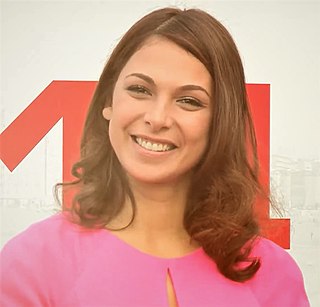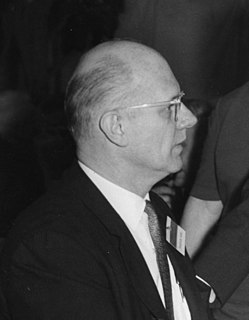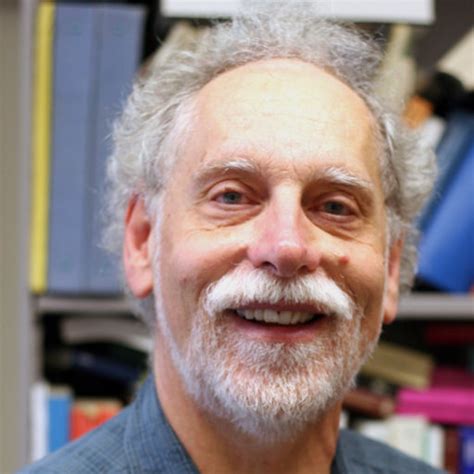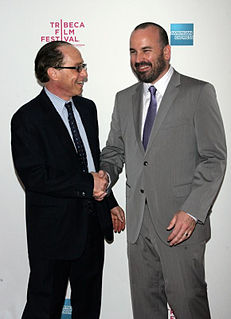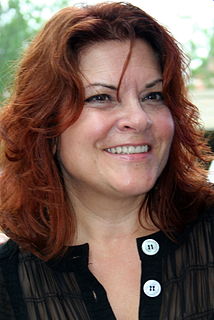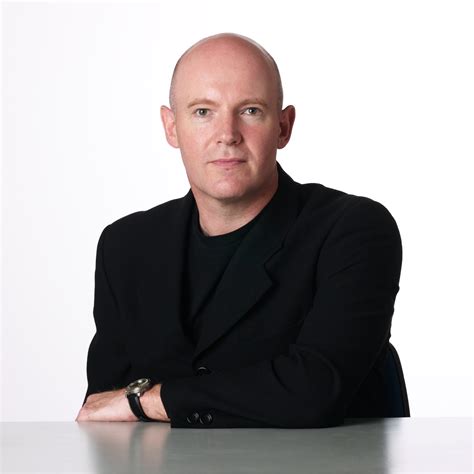Top 585 Linear Equations Quotes & Sayings - Page 9
Explore popular Linear Equations quotes.
Last updated on April 21, 2025.
At 42,000' in approximately level flight, a third cylinder was turned on. Acceleration was rapid and speed increased to .98 Mach. The needle of the machmeter fluctuated at this reading momentarily, then passed off the scale. Assuming that the off-scale reading remained linear, it is estimated that 1.05 Mach was attained at this time.
I now want to tell three stories about advances in twentieth-century physics. A curious fact emerges in these tales: time and again physicists have been guided by their sense of beauty not only in developing new theories but even in judging the validity of physical theories once they are developed. Simplicity is part of what I mean by beauty, but it is a simplicity of ideas, not simplicity of a mechanical sort that can be measured by counting equations or symbols.
I always liked creativity, whether it was to draw or sew - any creative assignment I was getting from school, or just on my own. I love people and behaviors, and I'm interested and fascinated by why we do what we do. And I wanted to be a therapist, to be honest. Maybe wirking in film combines the two worlds, in a not super-linear way, but it definitely feeds both my two passions.
A human being should be able to change a diaper, plan an invasion, butcher a hog, conn a ship, design a building, write a sonnet, balance accounts, build a wall, set a bone, comfort the dying, take orders, give orders, cooperate, act alone, solve equations, analyze a new problem, pitch manure, program a computer, cook a tasty meal, fight efficiently, die gallantly. Specialization is for insects.
Mathematicians are proud of the fact that, generally, they do their work with a piece of chalk and a blackboard. They value hand-done proofs above all else. A big question in mathematics today is whether or not computational proofs are legitimate. Some mathematicians won't accept computational proofs and insist that a real proof must be done by the human hand and mind, using equations.
Seeing and playing with physical objects can enable access to symbolic ideas. When I studied physics and math at university it was all done through equations and textbooks whereas artists go to art school and start making stuff; they fling paint at the walls, they dance and bash things together with giant bits of metal. Our society has come to think of science as being a very abstractified thing, and art as being a materialized thing.
It required unusual inquisitiveness to pursue the development of scientific curiosities such as charged pith balls, the voltaic cell, and the electrostatic machine. Without such endeavors and the evolution of associated instrumentation, initially of purely scientific interest, most of the investigations that lead to the basic equations of electromagnetism would have been missed. ... We would have been deprived of electromagnetic machinery as well as knowledge of electromagnetic waves.
Challenger was lost because NASA came to believe its own propaganda. The agency's deeply impacted cultural hubris had it that technology-engineering-would always triumph over random disaster if certain rules were followed. The engineers-turned-technocrats could not bring themselves to accept the psychology of machines with abandoning the core principle of their own faith: equations, geometry, and repetition-physical law, precision design, and testing-must defy chaos.
You see, Dad, Professor McLuhan says that the environment that man creates becomes his medium for defining his role in it. The invention of type created linear, or sequential thought, separating thought from action. Now, with TV and folk singing, thought and action are closer and social involvement is greater. We again live in a village. Get it?
Every cell in our body, whether it's a bacterial cell or a human cell, has a genome. You can extract that genome - it's kind of like a linear tape - and you can read it by a variety of methods. Similarly, like a string of letters that you can read, you can also change it. You can write, you can edit it, and then you can put it back in the cell.
Renormalization is just a stop-gap procedure. There must be some fundamental change in our ideas, probably a change just as fundamental as the passage from Bohr's orbit theory to quantum mechanics. When you get a number turning out to be infinite which ought to be finite, you should admit that there is something wrong with your equations, and not hope that you can get a good theory just by doctoring up that number.
Hopping around time in a non-linear storytelling fashion (on 'Lost') allows you to bring back characters who are dead and, in some cases, buried. Now that time travel is the story itself, it opens up even more doors. So when an actor reads that they're getting killed off on the show, they're basically, like, 'Okay, but should I still bother to show up next week?'
Generally I start writing when I have even the smallest idea of how a book is going to go, because the physical process of writing itself keeps the mind active and focused on the job at hand. Usually I write in about 5 drafts, but that simply means there are 5 definite times when I go in a linear fashion from the beginning to the end of the book.
Man is said to be a reasoning animal. I do not know why he has not been defined as an affective or feeling animal. Perhaps that which differentiates him from other animals is feeling rather than reason. More often I have seen a cat reason than laugh or weep. Perhaps it weeps or laughs inwardly - but then perhaps, also inwardly, the crab resolves equations of the second degree.
Text is linear; it is black and white; it doesn't zoom around the page in 3-D; it isn't intelligent by itself; in fact, in terms of immediate reaction it is quite boring. I can't imagine a single preliterate was ever wowed at the first sight of text, and yet text has been the basis of arguably the most fundamental intellectual transformation of the human species. It and its subforms, such as algebra, have made science education for all a plausible goal.
Evidence in support of general relativity came quickly. Astronomers had long known that Mercury’s orbital motion around the sun deviated slightly from what Newton’s mathematics predicted. In 1915, Einstein used his new equations to recalculate Mercury’s trajectory and was able to explain the discrepancy, a realization he later described to his colleague Adrian Fokker as so thrilling that for some hours it gave him heart palpitations.
I feel like the big twist shows are now off the table. I think Westworld was probably the last one to Trojan horse this idea of the young man in black. They were doing non-linear storytelling, but disguising it. Jonah Nolan and Lisa Joy have spoken openly about how they just didn't think people were going to figure it out that fast.
Writing is linear and sequential; Sentence B must follow Sentence A, and Sentence C must follow Sentence B, and eventually you get to Sentence Z. The hard part of writing isn't the writing; it's the thinking. You can solve most of your writing problems if you stop after every sentence and ask: What does the reader need to know next?
This is often the way it is in physics - our mistake is not that we take our theories too seriously, but that we do not take them seriously enough. It is always hard to realize that these numbers and equations we play with at our desks have something to do with the real world. Even worse, there often seems to be a general agreement that certain phenomena are just not fit subjects for respectable theoretical and experimental effort.
What is it with science these days? Everyone is so quick to believe in it, in all these new scientific discoveries, new pills for this, new pills for that. Get thinner, grow hair, yada, yada, yada, but when it requires a little faith in something you all go crazy.' He shook his head, 'If miracles had chemical equations then everyone would believe.
Accordingly, we find Euler and D'Alembert devoting their talent and their patience to the establishment of the laws of rotation of the solid bodies. Lagrange has incorporated his own analysis of the problem with his general treatment of mechanics, and since his time M. Poinsôt has brought the subject under the power of a more searching analysis than that of the calculus, in which ideas take the place of symbols, and intelligent propositions supersede equations.
The first issue that compelled me was a very strange split between India being highly development scientifically (we were the third biggest scientific manpower in the world then) and yet at the same time struggling with amazing poverty. The linear equation that says that modern science equals progress and the reduction of poverty did not apply to India. It wasn't working.
An oral society develops both sides of your brain, and the utilization of your brain is more complete than in a linear education module. The written word limits your brain capability by immediately focusing on one area. You don't have any peripheral vision. It immediately divorces you from the environment.
Simplification seems to be the removal of objects for the goal of making a graphic as clean and uncluttered as possible. Whereas, with optimization, it feels like there's more intelligence in that. It maintains the usability, but tries to distill something down to its essence. But with some data-sets you have to be careful because, as with linear, print journalism, it's easy to shave off facts that don't quite fit the flow.
Computers get better, faster than anything else ever. A child's PlayStation today is more powerful than a military supercomputer from 1996. But our brains are wired for a linear world. As a result, exponential trends take us by surprise. I used to teach my students that there are some things, you know, computers just aren't good at like driving a car through traffic.
My own movement of thought is not meant to be a straight point-to-point, linear line of march, but horizontal exploration from one area of interest to another. There is no ultimate destination - no finish line to cross, no final conclusion to be reached. It's the way I feel about dancing - you move around a lot, not to get somewhere, but to be somewhere in time.
Linear programming is viewed as a revolutionary development giving man the ability to state general objectives and to find, by means of the simplex method, optimal policy decisions for a broad class of practical decision problems of great complexity. In the real world, planning tends to be ad hoc because of the many special-interest groups with their multiple objectives.
If time is treated in modern physics as a dimension on a par with the dimensions of space, why should we a priori exclude the possibility that we are pulled as well as pushed along its axis? The future has, after all, as much or as little reality as the past, and there is nothing logically inconceivable in introducing, as a working hypothesis, an element of finality, supplementary to the element of causality, into our equations. It betrays a great lack of imagination to believe that the concept of "purpose" must necessarily be associated with some anthropomorphic deity.
A good deal of my research in physics has consisted in not setting out to solve some particular problem, but simply examining mathematical equations of a kind that physicists use and trying to fit them together in an interesting way, regardless of any application that the work may have. It is simply a search for pretty mathematics. It may turn out later to have an application. Then one has good luck. At age 78.
When I make music I try to be as honest as I can to how I experience the world. Like how you arrange a piece of music formally. I tend to observe a lot of chaos or whatever, the fragmentation and melancholy. That's the filter I synthesize my world view with. If I didn't formally have that chaos and it was really linear, it would make my skin crawl.
Grandad taught me that the alien signs and symbols of algebraic equations were not just marks on paper. They were not flat. They were three-dimensional, and you could approach them from different directions, look at them from different ways, stand them on their heads. You could take them apart and put them back together in a variety of shapes, like Legos. I stopped being scared of them.
The relationship between art and a job is not quite linear, but I really love any and all manifestations of art, really respect any kind of artistic impulse, whether it's paintings and sculptures or really good filmmaking or music. I really see the relationships between these different mediums as very fluid.
Now I began to understand art as a kind of black box the reader enters. He enters in one state of mind and exits in another. The writer gets no points just because what's inside the box bears some linear resemblance to "real life" -- he can put whatever he wants in there. What's important is that something undeniable and nontrivial happens to the reader between entry and exit.
Any high school boy or girl knows how to calculate the force with which a stone he or she throws will hit someone in the face, but nothing in those equations they use will tell them whether or not to throw it...To solve the problem of values we must know what is valuable. Consciousness is the most valuable commodity...To bring values into science, we need to connect science with what is valuable consciousness.
I realized that every second that I'm alive, the world cares less about me. It's just a very linear, downward progression. And it sounds cynical because you guys are young and you're full with life. I want you to understand - this is it. You have nothing to look forward to because you're peaking. If you're not having fun now, kill yourself. I don't mean that in a bad way, just - it's not worth it to go forward.
The Anglo-American tradition is much more linear than the European tradition. If you think about writers like Borges, Calvino, Perec or Marquez, they're not bound in the same sort of way. They don't come out of the classic 19th-century novel, which is where all the problems start. 19th-century novels are fabulous and we should all read them, but we shouldn't write them.
I was appalled to find that the mathematical notation on which I had been raised failed to fill the needs of the courses I was assigned, and I began work on extensions to notation that might serve. In particular, I adopted the matrix algebra used in my thesis work, the systematic use of matrices and higher-dimensional arrays (almost) learned in a course in Tensor Analysis rashly taken in my third year at Queen's, and (eventually) the notion of Operators in the sense introduced by Heaviside in his treatment of Maxwell's equations.
I think that people talk about radical life extensions as if it is just one linear kind of journey, when actually what's going to happen is we're going to radically expand our lives billions and billions of times in every way, in every dimension and so I'm looking forward to things I can't even imagine yet.
It's easy to fall into the trap of assuming that a new technology is very similar to its predecessors. A new technology is often perceived as the linear extension of the previous one, and this leads us to believe the new technology will fill the same roles - just a little faster or a little smaller or a little lighter.
The underlying physical laws necessary for the mathematical theory of a large part of physics and the whole of chemistry are thus completely known, and the difficulty is only that the exact application of these laws leads to equations much too complicated to be soluble. It therefore becomes desirable that approximate practical methods of applying quantum mechanics should be developed, which can lead to an explanation of the main features of complex atomic systems without too much computation.
There was a blithe certainty that came from first comprehending the full Einstein field equations, arabesques of Greek letters clinging tenuously to the page, a gossamer web. They seemed insubstantial when you first saw them, a string of squiggles. Yet to follow the delicate tensors as they contracted, as the superscripts paired with subscripts, collapsing mathematically into concrete classical entities - potential; mass; forces vectoring in a curved geometry - that was a sublime experience. The iron fist of the real, inside the velvet glove of airy mathematics.
There is a tendency in my work toward minimalism, in terms of stripping away the unnecessary. I am seeking a tightly ordered gestalt, usually. I've always felt a strong affinity towards Mondrian's work. I understand the importance of those subtle planar and linear modulations he made in the course of building up the incredible visual tension in his work.
In quantum mechanics there is A causing B. The equations do not stand outside that usual paradigm of physics. The real issue is that the kinds of things you predict in quantum mechanics are different from the kinds of things you predict using general relativity. Quantum mechanics, that big, new, spectacular remarkable idea is that you only predict probabilities, the likelihood of one outcome or another. That's the new idea.
All your clear and pleasing sentences will fall apart if you don't keep remembering that writing is linear and sequential, that logic is the glue that holds it together, that tension must be maintained from one sentence to the next and from one paragraph to the next and from one section to the next, and that narrative - good old-fashioned storytelling - is what should pull your readers along without their noticing the tug.
I was never very good at math and science, to be honest, so it's fun to play a character that is so scientific and mathematical, and whose brain functions at such a high pace. The biggest difference is that Maura is very linear in her thinking and very logical. I'm not quite like that. I'm much more laid back and not quite so type A. That's the big difference.
Like Thornton Wilder said, time is not a river, but rather a landscape that you step in and out of. I've always found that true of creative work, and I've heard so many songwriters and writers in general say the same thing... When you're going into the realms of your self and trying to tap into the mystery of this creative source, linear time kind of falls away.
Evidently, there are many great American writers. But sometimes it can feel as though American fiction is dominated by relatively linear narrative form, with a heavy emphasis on psychological realism. If you limit yourself to a certain kind of American literary fiction, it's easy to forget about the different kinds of books that are being written. You can forget to be ambitious, both as a reader and a writer.
In 1990, if I wanted a pair of Calvin Klein jeans I had seen in a magazine, I'd head to the mall, sift through piles of inventory to find my size, try them on, ask the opinion of the often inexperienced sales associate, wait in line to check out, pay, and head home. The process was linear and ripe for improvement.
What I remove from my writing is linear context. It's not really important to me, because it doesn't give me chills to see, "you flip the latch and the lock opens and then you can open the top of the chest and inside the chest is this." That doesn't give me chills, to think in that vein. So I've always kind of avoided it.
A scientist's life, the author says, is indeed conflictual, formed by battles, defeats, and victories: but the adversary is always and only the unknown, the problem to be solved, the mystery to be clarified. It is never a matter of civil war; even though of different opinions, or of different political leanings, scientists dispute each other, they compete, but they do not battle: they are bound together by a strong alliance, by the common faith "in the validity of Maxwell's or Boltzmann's equations," and by the common acceptance of Darwinism and the molecular structure of DNA.


